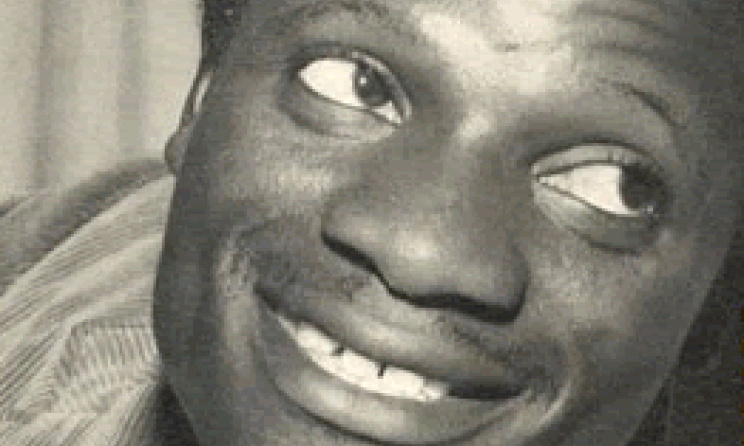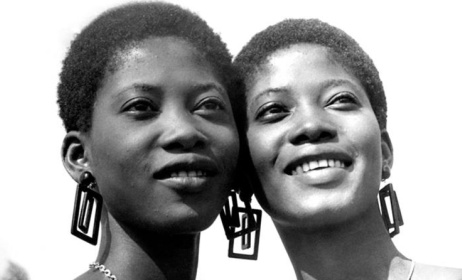Kings of Highlife: E.T.Mensah and Victor Olaiya
Artistes: E.T.Mensah and Victor Olaiya
Album: Kings of Highlife Volume 1
Year: 1983
 Victor Olaiya and E.T.Mensah
Victor Olaiya and E.T.Mensah E.T.Mensah in the 1950's
E.T.Mensah in the 1950's Victor Olaiya in the 1960's
Victor Olaiya in the 1960's Victor Olaiya and E.T Mensah
Victor Olaiya and E.T Mensah
Highlife as a genre, is not defined as West Africa's unique creation, by chance with origins firmly traceable to its coastal recesses, dating back to the early 20th century. Whilst Highlife is a musically unifying factor, it has also been the cause of deep nationalist rivalries between its three main host nations, Ghana (the originators), Sierra Leone and Nigeria. One particularly sad episode in Highlife's journey being the difficult circumstances in which one its great's, Emmanuel Tetteh (E.T) Mensah departed Nigerian in the early 1960's, under a cloud of muted grumbling by Nigerian Musicians, of his having been "copying" music. An accusation, which experts found to be less than accurate, but unsurprising in the fraught competitive atmosphere that existed at the time.
Whilst E.T.Mensah was for a time the undisputed King of Highlife in Ghana, with a career dating back to the 1930's, Victor Olaiya, was himself no less influential in Nigerian Highlife music, with a career dating back to the late 1940's and both with a formidable catalogue of hits respectively notched up over the years. It was thus pure artistic common-sense, when Polydor Records decided on a collaborative album between what were plainly and simply two giants of Highlife Music, with the format being re-recording's of the duo'sindividual golden hits.
Mensah made his triumphal return to Nigeria (after the unfortunate happenings of the 1960's), where the recording was done at Polydor's studio's in Lagos. Seven songs in total were recorded, of which the large majority were Mensah's (five in number), although Olaiya contributed lead vocals on one of Mensah's compositions 'Yabomisa No.2'. Mensah's other masterpieces recorded were 'Essi Nana', 'Mr Judge', 'Anyanko goro' and 'Odofo nuapa'. Olaiya on his part contributed his sublime,'Omolanke' and 'Trumpet Highlife', whilst performing the vocals on 'Yabomisa No.2', as said earlier.
The biggest give-away as to the identity of the backing band, for die-hard Highlife fans, being the haunting, lightly effected Guitar lines of Victor Olaiya's legendary Guitar sideman,"Easy Kabaka" Brown. On the whole, a slick professional and heartfelt effort, with the two great master's actually seeming to enjoy themselves, rather than simply rehashing old hits, for a transient pay-day. There would be a legitimate tendency by afficionadoes to compare these recordings and the feedback would likely be that there was little devaluation of original quality, with the major difference being in the players, in the case of Mensah's recordings and the technical quality, which is clearly impacted by more modern sound engineering. On the whole, this album earned its place amongst African classics, wiith two of its very best, coming together in true musical brotherhood to recreate the golden age of a genre that at the time (1983) was facing decline.
E.T.Mensah was to sadly pass away in 1996, aged 78, whilst Victor Olaiya is still going strong and in fact recently recorded another duet with the young and talented 2Face Idibia. Similarly Mensah's music continues to be sampled by young Ghanaian stars of the hybrid Hip-life genre, in posthumous tribute.The overwhelming legacy of this album would thus be that Highlife lives and surely surely it does!



































Comments
Log in or register to post comments